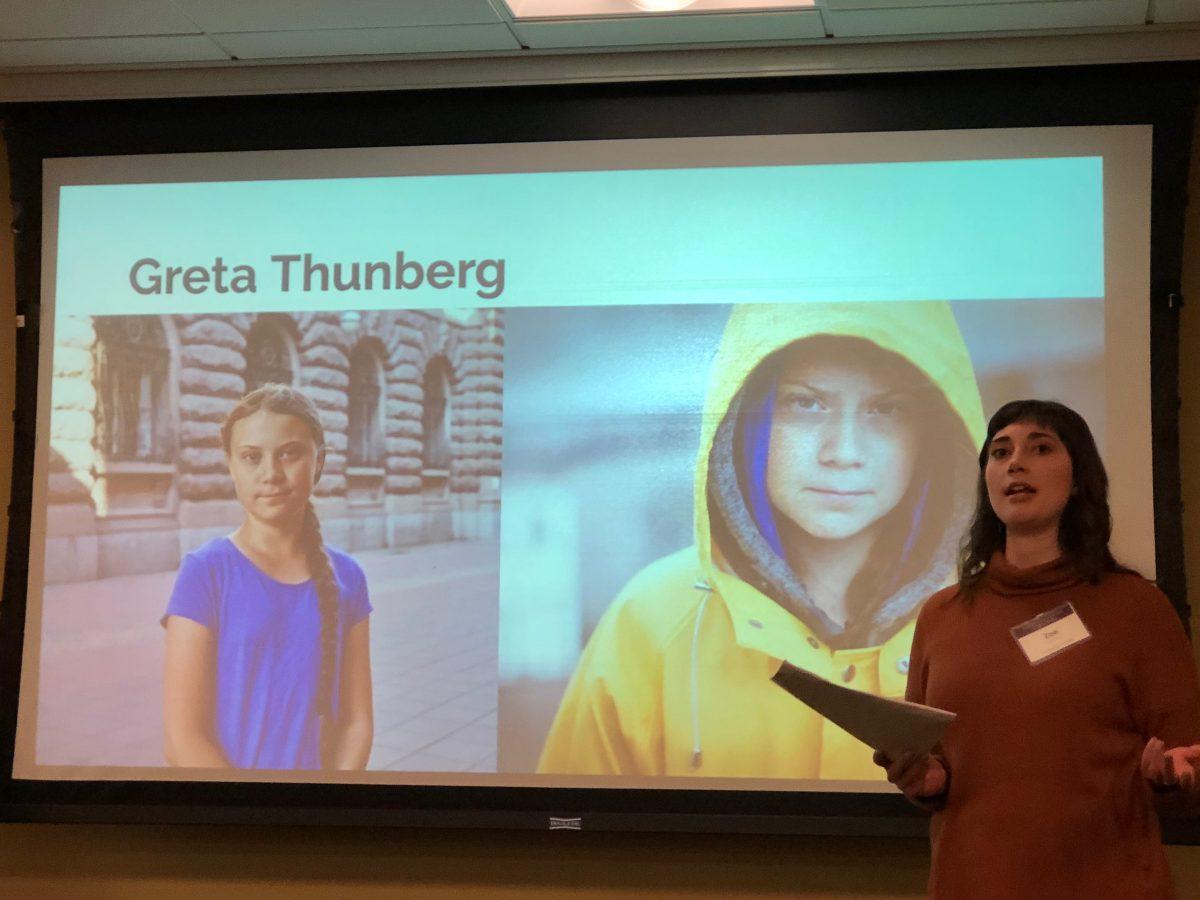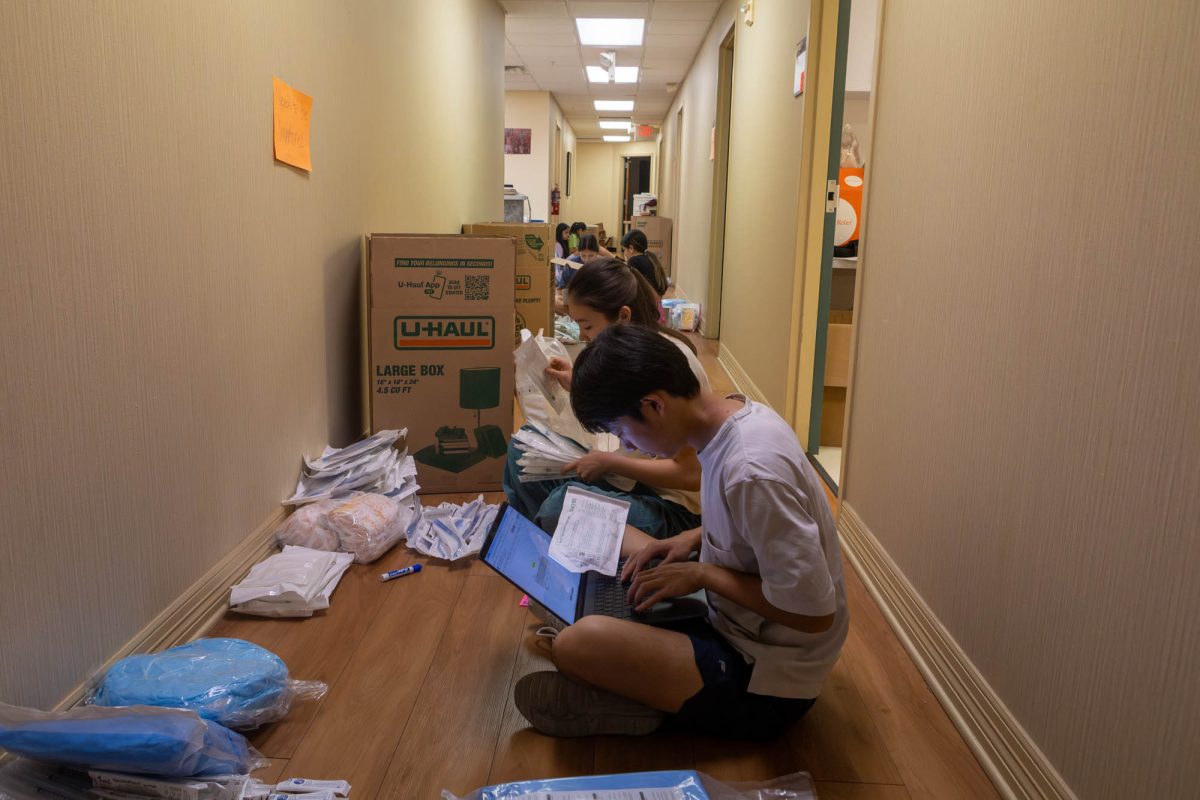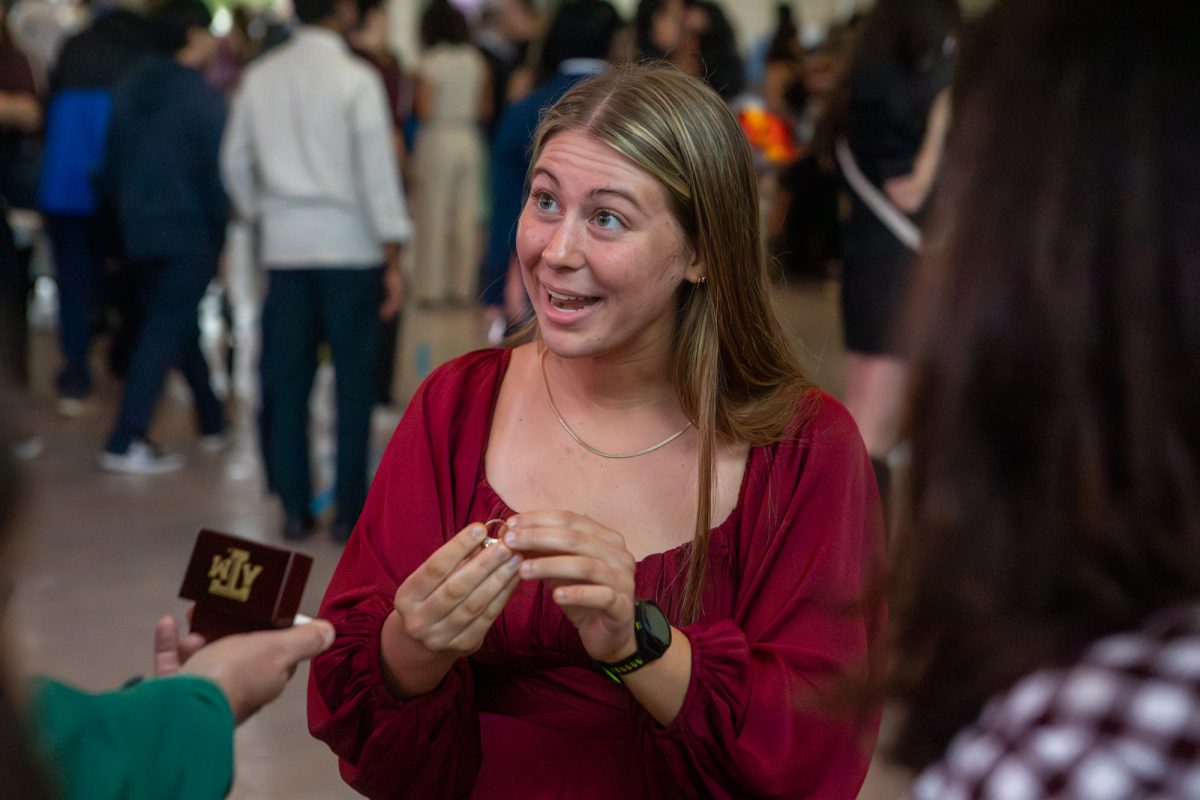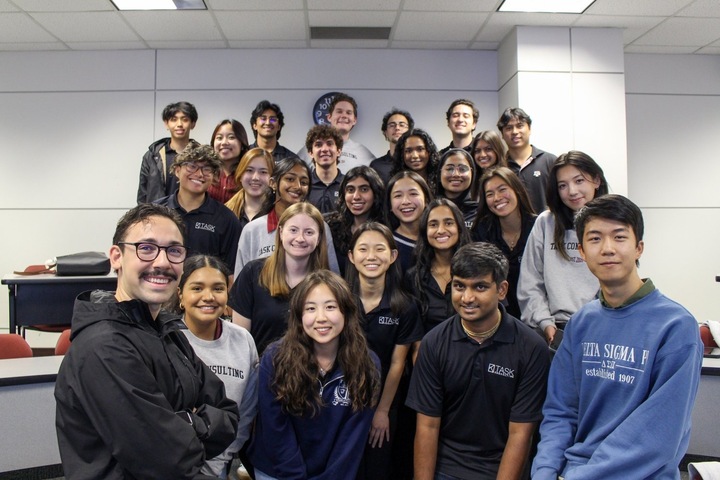While climate change affects everyone on the planet, researchers who focus on how climate change is communicated showed the negative effects already impacting communities on the margin while noting that no one is unaffected.
Day one of “Communicating the New Climate Regime: Confronting the Coming Barbarism” included presentations on the global climate movement inspired by Swedish teen activist Greta Thunberg in contrast to the history of environmental racism against poor, African American communities in the U.S. The conference continues Friday, Feb. 21, with nine speakers discussing the science and religion of global warming, designing a just climate policy, and fascist and democratic tendencies in the new climate regime. All presentations are open to the public; no advance registration required.
Professor Nathan Crick, Ph.D., opened the conference by focusing on the rhetoric of the new climate regime and how it impacts individuals. Crick is the author of six books and specializes in rhetoric and public affairs in the Dept. of Communication at Texas A&M.
“We are trying to show how climate change is communicated,” Dr. Crick said. “It affects communities in the center and on the margins. Part of what global warming does as a movement is that there is no one unaffected.”
Zoe Clemmons, a researcher at Colorado State University in the Journalism & Media department, has analyzed Thunberg communicates on her Instagram account. Thunberg, who was nominated for the 2019 and 2020 Nobel Peace Prize, has maintained a largely hopeful outlook in her posts, said Clemmons, in contrast to the content of many of her speeches including at the U.N. Thunberg has called out leaders for not doing more to combat the climate crisis, said Clemmons.
While 69 percent of American are worried about climate change, 70 percent would not donate $10 to fight the cause, noted Clemmons.
Thunberg’s message of hope on social media stands in sharp contrast to the key issue of trash – and where it is dumped – the focus a presentation by Hana Masri of the University of Texas at Austin. Her research defined the rhetoric of smell — specifically the omnipresent stench of trash — and early organizing efforts by CORE against environmental racism during the Jim Crow era in the South.
“They put garbage where they think garbage lives,” Masri explained about the decision of white community leaders to put the town’s landfill in the center of the African American neighborhood while also limiting trash pickup within the black community.
The health problems imposed on impoverished African American communities was highlighted by Racquel Robvias, Ph.D., from Louisiana State University, in her presentation on an “Urban Heat Island.”
“It’s a slow violence,” Robvias explained. “It’s internal; what’s going on, on the inside.”
Ryan McGeough of the University of Northern Iowa, who presented on the changing relationship to land, said he appreciated the chance to bring together academics from across the country to address the rhetoric of climate change.
“They did a nice job of getting some really heavy hitters academically to come and be in one place talking to each other,” McGeough said.
Phaedra Pezzullo from University of Colorado, Boulder, will close out the conference tomorrow by focusing on “climate barbarism.” Pezzullo said she feels strongly that it is imperative to respond to the climate crisis.
“Do we want to have radical individualism?” Pezzullo asked. The alternative, she noted, is to act in the public good.
Day two of “Communicating the New Climate Regime: Confronting the Coming Barbarism” resumes at 9 a.m. in MSC 1400 with Giselle Warren of Texas A&M University presenting “The Science and Religion of Global Warming.”
Saving the Planet through the education of Climate Change
February 20, 2020
0
Donate to The Battalion
$2790
$5000
Contributed
Our Goal
Your donation will support the student journalists of Texas A&M University - College Station. Your contribution will allow us to purchase equipment and cover our annual website hosting costs, in addition to paying freelance staffers for their work, travel costs for coverage and more!
More to Discover










